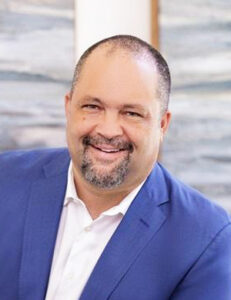
By Ben Jealous
The holidays are a time for coming together. We should not just be coming together physically to drive us further apart mentally, emotionally, and spiritually by reinforcing our differences.
Yet a lot of organizations, brands, and politicians put out discussion guides and talking points to help their supporters “win the debate” at holiday gatherings, or change the minds of their family and friends who hold “opposing” views.
Let’s instead focus on what we know we all agree on, what we have in common, and strengthen bonds at the family and friend-group level – which will eventually lead to strengthened bonds at the community level and beyond.
And we agree on a lot.
You would be hard-pressed to find someone who does not want cheaper utility bills. With clean energy jobs already powering the economy, that increasingly means lighting and heating our homes with clean energy sources like solar, wind, and batteries. The transition is not so far along because of some hidden green agenda; it is because clean, renewable energy is both cheaper and more resilient than fossil fuels. Speeding up the clean energy transition already underway is the true path to lower prices for ratepayers and more reliable power grids. But that does not mean you need to show up ready to argue about it or put someone on the spot for not already being aware of it. Start where you agree – that we all want lower prices. The mutual understanding that will create must come before people’s minds can be open to new ideas.
We all want to protect our children’s health. Moreover, we all know that toxic, polluted water and air are threats to people’s health. When it comes to the water we drink and our kids swim in, there is near universal agreement: 96 percent of voters polled this year said protecting the health and safety of drinking water is important; 94 percent said protecting our nation’s lakes, rivers, and streams is important. There are few things people agree on more. People also generally agree about the importance of breathing safe, healthy air. If faced with the choice of managing their kid’s asthma with new inhalers and lifestyle restrictions or simply having cleaner air to breathe, what do you think they would choose? People do not need to be well versed in statistics about the sources of pollution and their true costs in order to care that the water and air are not making their families sick. That is a solid starting point for any conversation about solving the public health crises caused by pollution.
And who doesn’t want to make it easier for people to get outdoors? People already know that getting outside is good for you. The benefits to physical and mental health are well documented. (I would add it is great for spiritual health as well.) And Americans are increasingly trying to get outside more. But we all know there are barriers – especially for those of us who lack green spaces in our neighborhoods. With 80 percent of Americans living in or near cities, that could be a real obstacle. We can all agree that having easier access to nature is important. Whether it is in community parks and gardens, or the natural spaces that are part of our heritage as Americans like our National Parks, virtually everyone wants more options for enjoying the outdoors and greater ability to do so.
Americans are a lot more unified than the media and many of our networks care to admit. We are coming out of an election year that many regarded as the peak of American polarization. But while that political polarization may be real, it does not mean that people on different sides of a debate or the political spectrum don’t see eye to eye on a lot of things.
In many cases, what we agree on are the overarching values, and the goals we should be striving towards. The big stuff. Even if we disagree on how we get there. Keeping our eyes on the prize can help keep us unified.
So let’s zoom out from the disagreements over how we solve the problems we all agree are problems. We are immersed in different news and commentary, thanks to agenda-driven news outlets and algorithm-driven online feeds that steer us in different directions and pit us against each other. But the human condition remains constant. And we should all be able to connect on a human level. What we can build from there, together, is only limited by our own imaginations.
Ben Jealous is the Executive Director of the Sierra Club, former CEO and president of the NAACP and a Professor of Practice at the University of Pennsylvania.
